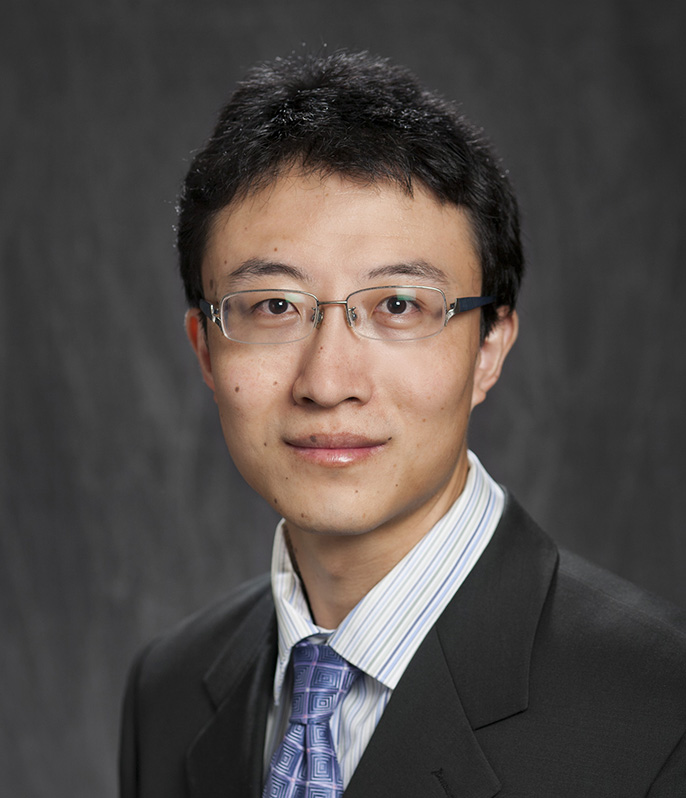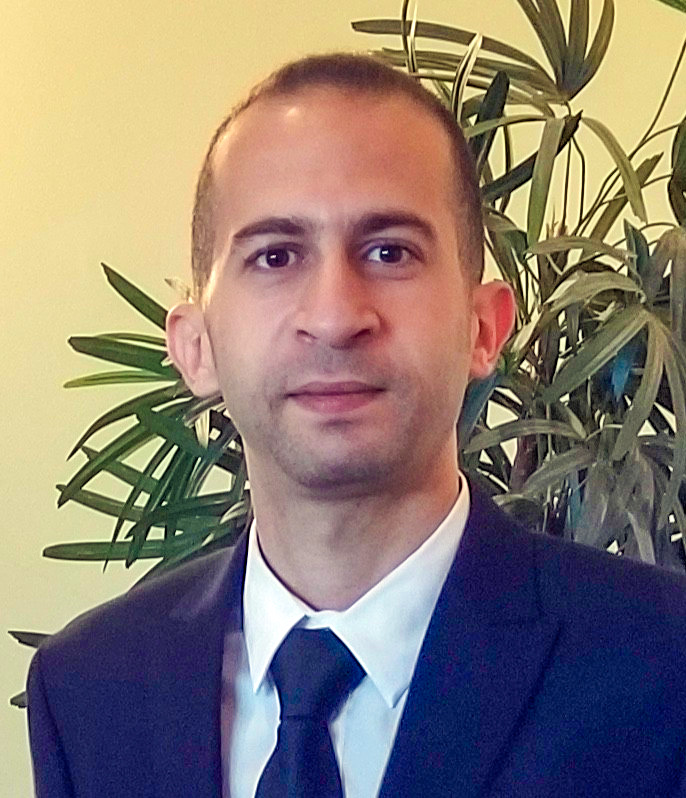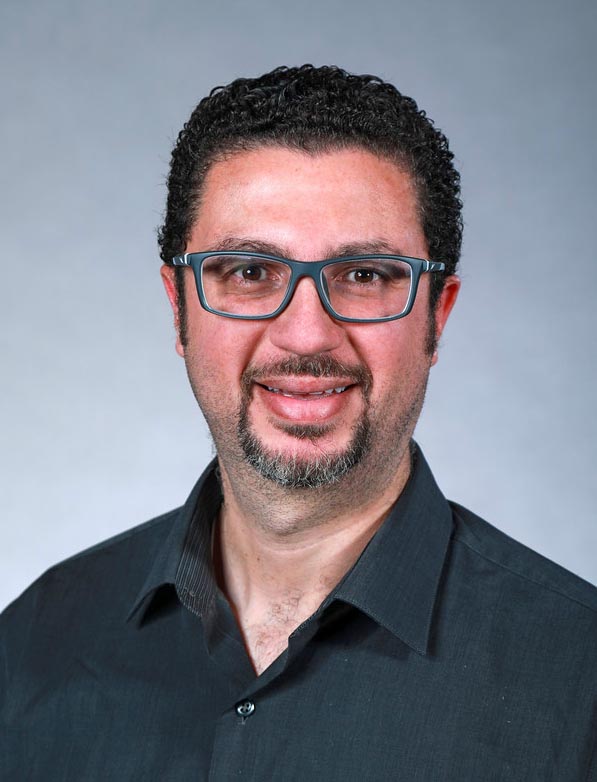Webinars
UPCOMING |
PRESENTED |
High-Altitude Pseudo Satellites (HAPS) for Reliable Connectivity and Navigation Services
Speaker: Dr. Hany Elgala, Universityat Albany- SUNY
Date and Time: March 5, 2025 at 11:00am CST
Abstract
High-Altitude Platform Systems (HAPS) represent a transformative technology for enhancing connectivity and navigation. Operating in the Near Space between 20 and 100 km, a HAPS combines the features of an aircraft and a satellite, providing coverage that bridges terrestrial networks and satellite communication. The integration of HAPS into existing infrastructures holds substantial promise for more reliable connectivity and navigation services. A key application of HAPS is supporting future transportation systems such as autonomous vehicle operations. In this talk, we will introduce the HAPS as a technology for telecommunication and navigation services. The focus is on the essential elements of wireless communications aspects and issues affecting HAPS system performance, such as propagation, channel modeling, and transmission reliability. Finally, we will discuss the present and future of this technology.
Biography
|
Smart Roads for Resiliance in Intelligent Transportation Systems
Speaker: Dr. Mona Jaber, Queen Mary University of London, UK
Date and Time: February 5, 2025 at 11:00am CST
Abstract
Biography
 Mona Jaber is a Senior Lecturer in IoT with the School of Electronic Engineering and Computer
Science, Queen Mary University of London. Her research interests include zero-touch
networks, the intersection of ML and IoT in the context of sustainable development
goals, and IoT-driven digital twins. In this regard, she has published in the areas
of sustainable energy, smart mobility, and privacy-preserving e-health. As part of
her industry research collaboration efforts, Mona has established a ground-breaking project that uses optical fibre systems for the
detection and classification of active travel – a robust, scalable, and privacy-preserving
method that informs smart city and safety in transportation planning. She is the director
of the ‘Digital Twins for Sustainable Development Goals’ research lab at QMUL, where
she attracted the first multidisciplinary core team to further the studies in this
area. Mona was awarded the title of N2Women Rising Star in Computer Networking and Communications
in 2022. She is a committee member of the IEEE-PST-Transportation group and an executive
committee member of the IEEE UK and Ireland Women in Engineering affinity group.
Mona Jaber is a Senior Lecturer in IoT with the School of Electronic Engineering and Computer
Science, Queen Mary University of London. Her research interests include zero-touch
networks, the intersection of ML and IoT in the context of sustainable development
goals, and IoT-driven digital twins. In this regard, she has published in the areas
of sustainable energy, smart mobility, and privacy-preserving e-health. As part of
her industry research collaboration efforts, Mona has established a ground-breaking project that uses optical fibre systems for the
detection and classification of active travel – a robust, scalable, and privacy-preserving
method that informs smart city and safety in transportation planning. She is the director
of the ‘Digital Twins for Sustainable Development Goals’ research lab at QMUL, where
she attracted the first multidisciplinary core team to further the studies in this
area. Mona was awarded the title of N2Women Rising Star in Computer Networking and Communications
in 2022. She is a committee member of the IEEE-PST-Transportation group and an executive
committee member of the IEEE UK and Ireland Women in Engineering affinity group.
Exploring Auditory Perception for Autopiloting with CARLA Simulator
Speaker: Dr. Jian Tao, Texas A&M University
Date and Time: September 11, 2024 at 11:00am CST
Abstract
In this talk, we will present our project aimed at enhancing the CARLA simulator by integrating auditory information to improve the perception capabilities of autonomous vehicles. The primary objective is to incorporate sound-based data to augment the decision-making processes of autopiloting systems, enabling them to respond more effectively to their environment. We will discuss the development and integration of virtual microphones and other auditory sensors within the CARLA environment, specifically designed to detect sirens. The talk will cover the implementation of the sound processing algorithm for sound source localization, classification, and event detection. A sample autopilot system is demonstrated to automatically pull over the car when approaching sirens are detected and resume driving once the sirens fade away. This project aims to push the boundaries of autonomous vehicle technology, making it more perceptive, responsive, and safer for real-world deployment, while also advancing the simulation capabilities of the CARLA platform.
Biography
 Dr. Jian Tao is an Assistant Professor from the Section of Visual Computing & Computational
Media in the School of Performance, Visualization & Fine Arts at Texas A&M University.
He is also the Director of the Digital Twin Lab and the Assistant Director for Project
Development at the Texas A&M Institute of Data Science. Tao received his Ph.D. in
Computational Astrophysics from Washington University in St. Louis in 2008 and worked
on computational frameworks for numerical relativity, computational fluid dynamics,
coastal modeling, and other applications at Louisiana State University before he joined
Texas A&M in 2016. In 2018, Tao led the Texas A&M team to the final of both the ASC18
and SC18 student cluster competitions. He is a faculty advisor of the Texas A&M 12th
Unmanned Team for the SAE/GM AutoDrive Challenge Competition. Supported by a grant
from the Department of Commerce, Tao is leading an effort to build a digital twin
for the Disaster City managed by the Texas A&M Engineering Extension Service. Tao
is an NVIDIA DLI University Ambassador and a contributor to the SPEC CPU 2017 benchmark
suite. He currently serves as the Testbed Committee Co-Chair of the IEEE Public Safety
Technology Initiative. His research interests include digital twin, numerical modeling,
machine learning, data analytics, distributed computing, visualization, and workflow
management.
Dr. Jian Tao is an Assistant Professor from the Section of Visual Computing & Computational
Media in the School of Performance, Visualization & Fine Arts at Texas A&M University.
He is also the Director of the Digital Twin Lab and the Assistant Director for Project
Development at the Texas A&M Institute of Data Science. Tao received his Ph.D. in
Computational Astrophysics from Washington University in St. Louis in 2008 and worked
on computational frameworks for numerical relativity, computational fluid dynamics,
coastal modeling, and other applications at Louisiana State University before he joined
Texas A&M in 2016. In 2018, Tao led the Texas A&M team to the final of both the ASC18
and SC18 student cluster competitions. He is a faculty advisor of the Texas A&M 12th
Unmanned Team for the SAE/GM AutoDrive Challenge Competition. Supported by a grant
from the Department of Commerce, Tao is leading an effort to build a digital twin
for the Disaster City managed by the Texas A&M Engineering Extension Service. Tao
is an NVIDIA DLI University Ambassador and a contributor to the SPEC CPU 2017 benchmark
suite. He currently serves as the Testbed Committee Co-Chair of the IEEE Public Safety
Technology Initiative. His research interests include digital twin, numerical modeling,
machine learning, data analytics, distributed computing, visualization, and workflow
management.
This webinar has passed. To listen to a recording of the session please click on the video above.
Enhancing AI/ML-Based Attack Detection in Connected and Autonomous Vehicles through Generative AI and Combinatorial Fusion Analysis
Speaker: Dr. Mohamed Rahouti, Fordham University
Date and Time: October 9, 2024 at 11:00am CST
Abstract
Ensuring the security and reliability of Connected and Autonomous Vehicles (CAVs)
necessitates robust intrusion and attack detection mechanisms. While AI and ML methods
have shown promise in this area, there is a pressing need for strategies that enhance
their generalizability and
robustness. This talk will explore the synergy of Generative AI (GAI) and Combinatorial
Fusion Analysis (CFA) in improving attack detection systems for CAVs. CFA integrates
multiple pre- trained AI/ML models using sophisticated fusion algorithms, enhancing
overall performance and
reliability. Simultaneously, GAI models, such as GANs, VAEs, and GPTs, can augment
and balance datasets, generating new features to enrich data representation. The combination
of GAI and CFA offers a powerful and sustainable platform for detecting and mitigating
a wide range of cyber threats in CAV environments. This presentation will delve into
recent advances in intrusion detection, highlighting the effectiveness of the GAI/CFA
approach specifically tailored for CAVs.
Biography
 Mohamed Rahouti received an M.S. degree in Mathematics (Statistics Concentration)
and a Ph.D. degree in Electrical and Computer Engineering, both from the University
of South Florida (Tampa, FL). He is currently an Assistant Professor in the Department
of Computer and Information Science at Fordham University in New York City. His research
interest focuses on blockchain technology, computer networking, machine learning,
and network security with applications to smart cities. Dr. Rahouti has authored/co-authored
over 50 peer-reviewed journals/conference papers and is a member of the IEEE Computer
and Communications Societies. Mohamed Rahouti received an M.S. degree in Mathematics (Statistics Concentration)
and a Ph.D. degree in Electrical and Computer Engineering, both from the University
of South Florida (Tampa, FL). He is currently an Assistant Professor in the Department
of Computer and Information Science at Fordham University in New York City. His research
interest focuses on blockchain technology, computer networking, machine learning,
and network security with applications to smart cities. Dr. Rahouti has authored/co-authored
over 50 peer-reviewed journals/conference papers and is a member of the IEEE Computer
and Communications Societies. |
 Hany Elgala (IEEE, Member) is an Associate Professor in the Electrical and Computer
Engineering Department, at the University at Albany (UAlbany) - State University of
New York (SUNY). Before joining UAlbany, he was a Research Professor at Boston University
and the communications testbed leader in the Light Enabled Systems & Applications
(LESA) Engineering Research Center (ERC). Dr. Elgala has been actively engaged in
optical wireless communication research for over 18 years. Currently, he serves as
Editor-in-Chief for the Scifiniti Comm&Optics Connect Journal. He was an editor for
the IEEE Transactions on Communications (TCOM), IEEE Transactions on Cognitive Communications
and Networking, IEEE Access, and Frontiers. He has co-authored over 120 publications
including several patents and book chapters.
Hany Elgala (IEEE, Member) is an Associate Professor in the Electrical and Computer
Engineering Department, at the University at Albany (UAlbany) - State University of
New York (SUNY). Before joining UAlbany, he was a Research Professor at Boston University
and the communications testbed leader in the Light Enabled Systems & Applications
(LESA) Engineering Research Center (ERC). Dr. Elgala has been actively engaged in
optical wireless communication research for over 18 years. Currently, he serves as
Editor-in-Chief for the Scifiniti Comm&Optics Connect Journal. He was an editor for
the IEEE Transactions on Communications (TCOM), IEEE Transactions on Cognitive Communications
and Networking, IEEE Access, and Frontiers. He has co-authored over 120 publications
including several patents and book chapters.
 All Rights Reserved
All Rights Reserved